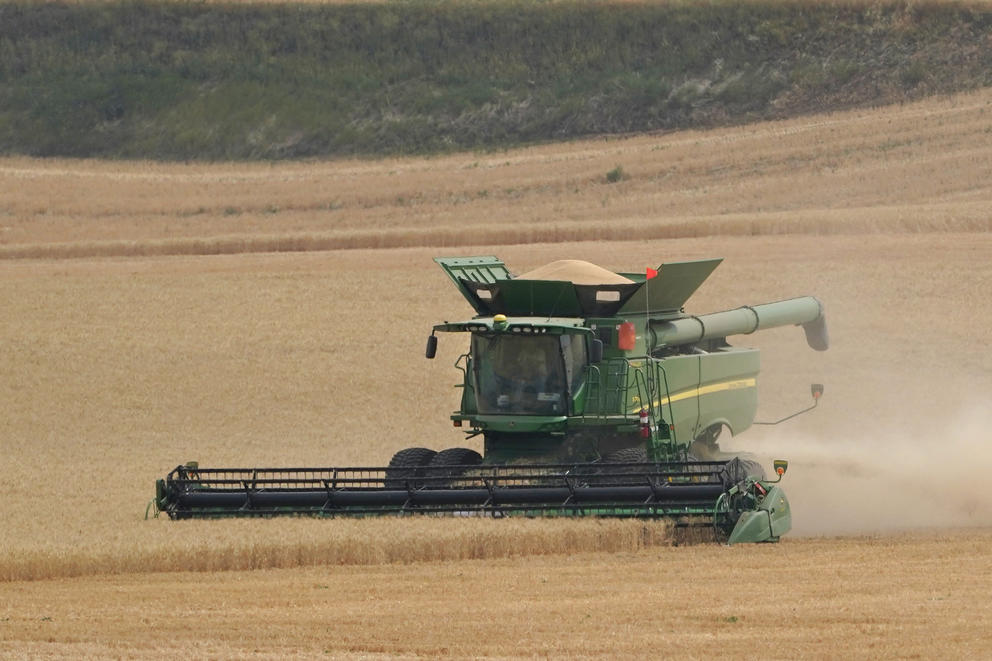Podcast | The politics of your dinner plate
The food that Americans eat says a lot about the political culture they live in. An expert panel discusses what the country's diet is telling us now.

A combine harvests wheat, Thursday, Aug. 5, 2021, near Pullman, Wash. (Ted S. Warren/AP)
Food is something that human beings think about every single day. It is the most intimate way we engage with the outside world – by ingesting parts of it – and the need to eat requires us to make choices. What makes it onto our dinner plates, then, says a lot about who we are and what we value, in a nutritional sense as well as a social sense.
To a certain extent, this perspective has become widely accepted. The rise of organic foods in the grocery aisle and farm-to-table on restaurant menus speaks to this kind of understanding. But the system that’s delivering that food to our plates is so much more complex than a label. And that’s what this episode of the Crosscut Talks podcast is about.
Subscribe to Crosscut Talks on Apple Podcasts, Spotify, Stitcher, or Podbean.
We invited two people who think a lot about food to share what they see when they look at our food systems. Eddie Hill is a co-founder of the Black Food Sovereignty Coalition and director of the Black Farm Bureau. Robert Paarlberg is the author of Resetting the Table: Straight Talk About the Food We Grow and Eat.
In conversation with Grist staff writer Kate Yoder, they tangle with the food system’s biggest problems, discuss whether a focus on local and organic foods are actually solving some of those problems and share what they see as the best course toward a healthier future for everyone.


